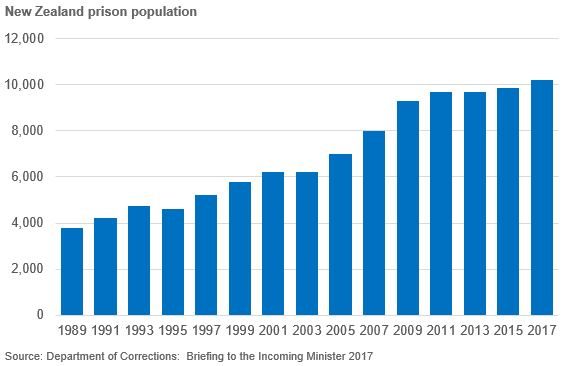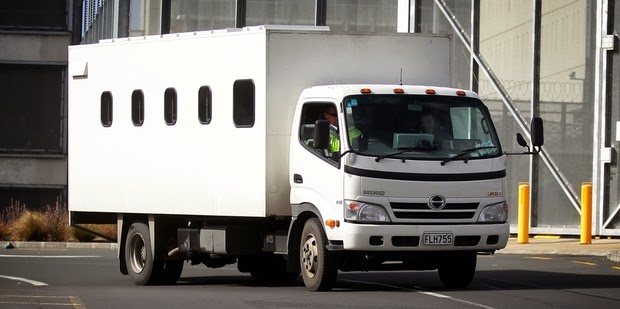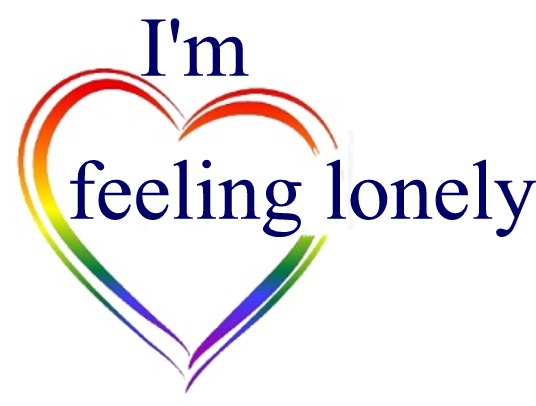Detained and lonely
If you are detained – for example, imprisoned or on home detention – we aren’t making a judgment on the rights or wrongs of what preceded you getting to this situation. We are however very empathetic that for many of you loneliness has been a factor in your life before you even offended, and is very likely to be a significant factor for a long time to come. We have huge sadness in seeing the amount of increased loneliness that any criminal activity brings for you, as well as for all the other people involved – your victims who include those you harmed, their families, and your families and whanau (we have a trauma page for victims of crime).
For many of you, as a detained offender in prison, part of your isolation from society means you aren’t able to surf the web and so you might only hear about our webpage through others.
The Department of Corrections in New Zealand has a priority to keep the public safe and to do all they can to break the cycle of you re-offending; however, they also have a vested interest in changing your lives and shaping your future. We believe that if you address the root causes of your loneliness from before you were caught in your offence as well as how you are feeling now, you are more likely to lead a better life going forward.
So if you are one of the many people in our Corrections system who feels lonely, or you know of someone who feels loneliness as a result of your being in prison or on probation, then read on. In fact even if you suspect others might be lonely, and they stoically say they aren’t, it’s worth understanding loneliness better.

Scratching the surface of being lonely
The reality is most New Zealanders think of detention, imprisonment and probation as events that happen to other people, and make judgements on whether you deserve your sentence or not…and in fairness have only seen prison through television and novels. So how we see the emotional aspect of what you live through every day is not necessarily the same as your experience. It’s hard for them to really grasp how very lonely you might be: what it’s like:
Feeling lost
....without the support of your family
Being anxious
... about the changes that you caused to your victims and their families.
Being ashamed
... that your actions brought you and your family into disrepute.
Being excluded
... from every milestone of each family member.
Lacking intimacy
... and the warmth of our loved ones close by.
Being detained gives rise to many challenges with regard to feeling lonely…
… and in addition to these, you undoubtedly identify with many of the same loneliness problems that aren’t related to losing your freedom.
Prevalence of loneliness
We are not aware of any statistics on the loneliness of the detained. In particular, if you are detained in prison then you are excluded from New Zealand’s statistics on loneliness – even though many of you may be lonely. The General Social Survey that collects loneliness statistics interviews individuals in households – not in prison.
Being detained can be a lonely experience. Although we do not know the prevalence of loneliness for the detained, we do believe that the number of those detained and lonely is growing, both due to the growth of the prison population and the introduction of home detention. The key message is that if you are detained and feeling lonely, then you are not alone.

Exposing loneliness
Feeling socially isolated occurs when people, like you, are not connected into their communities in a meaningful way. Society, other people and we ourselves unwittingly contribute to loneliness. To name a few, loneliness resulting from being detained might be exacerbated when:
- You are not treated like a human being.
- Your new living arrangements are not related in any way to your culture.
- Your own families and whānau disown you, leaving you with no form of communications and updates or visitors.
- You cannot afford any of even the smaller luxuries to provide some reprieve in your bleak existence.
- You are elderly and there is no likelihood of experiencing freedom again in your lifetime.
- You have dependents who have to go into foster care.

These are very real issues for you;
and some are not quick fixes! So despite these challenges it’s vital you actively find ways to ensure that you – and those around you – are emotionally healthy.
Exhibiting signs of being lonely
Solitude is very important for people to reflect and to come to grips with their situation. Being lonely for short periods is also not necessarily unhealthy. What we are considering is the type of loneliness which is prolonged and might be damaging to an individual’s health and wellbeing. Some people talk about their loneliness; other’s don’t. Some might not recognise that they are actually suffering from loneliness.
When people are already lonely, having people around you that you aren’t able to connect with on a deeper level, might even make your loneliness worse.
Research has shown that when socially isolated people aren’t getting enough regular human contact that can create problems with their family members and people who they do end up talking to.

This manifests behaviour such as:
- Giving up your will to live… seeing no way out to a different way of life.
- Not taking advantage of opportunities to improve yourself… your mindset, your skills, your resilience.
- Losing your spirituality… your faith used to be a large part of your life and is now lost.
- Showing no compassion to anyone around you… you feel dehumanised and you treat others the same.
- Feigning illness… having medical treatment breaks the monotony of routine.
- Always watching your back… not wanting the other prisoners to see your fear of them.
These are just the surface of the ways you might be showing signs of being lonely… and that you could recognise in others.
So where to from here?
Conquering loneliness
We appreciate…
you all have a unique story.
How long you have been lonely; What you believe causes your particular loneliness; and what you have already tried to alleviate the loneliness.

To get to the heart of your loneliness we would like to get to know you!
Your personality, your eccentricities, and your values are all part of what makes you feel your loneliness more than some others.
Your next step
We appreciate the trust you would place in us to talk openly and frankly – so we promise no judgements – genuine empathy, respect and confidentiality.
Then when we have understood you better, we can help you move forward. Help you form better connections with your spread out communities, with your friends and your families…wherever they are in the world.
If you are ready to take the next step, click the button to get started addressing your loneliness:
People feel lonely for many reasons. To learn more about other alone and lonely categories, select one of the coloured boxes below, or scroll down the “I’m feeling lonely” menu.

With our help you can conquer your loneliness by taking better care of your inner self.
And we can conquer loneliness in New Zealand by better understanding and accepting each other.
So when you are ready…click here.
We look forward to hearing your view of the world!
Department of Corrections (2017), “Briefing to the incoming Minister December 2017.” Read the briefing.
